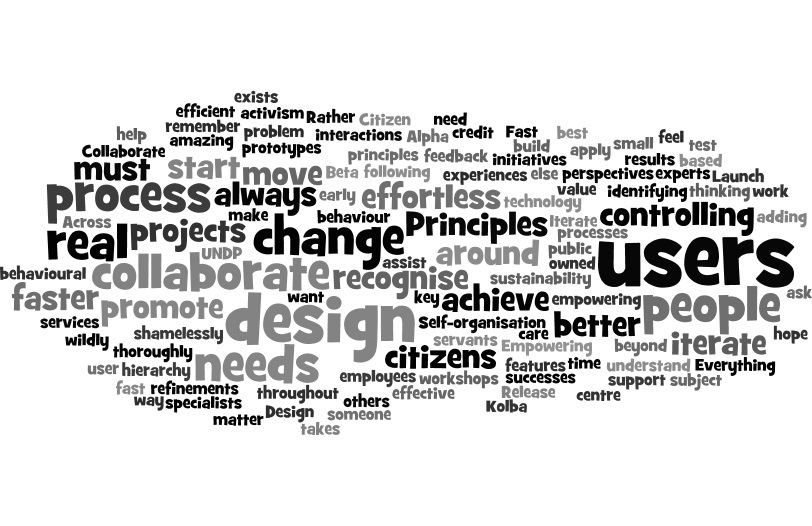
Design Principles
Kolba is about activism, technology and change. It exists for citizens, UNDP employees and public servants, so most of all, it is about people. Across all of the interactions, workshops and projects in which we collaborate, we apply the following principles:
Everything we do is owned by someone else
It is amazing what we can achieve when we do not care who takes credit. We do not support, assist or help; we collaborate. We shamelessly promote the initiatives in which we collaborate, but in doing so we make successes of others.
Collaborate wildly
We design with citizens, specialists and experts. The more perspectives on the problem, the better. We recognise that, no matter the subject, if we want to promote behavioural change, we have to work with the people whose behaviour we hope to change.
Citizen at the centre
The design process must start with identifying and thinking about real user needs. We should design around those and not around the needs of our processes. We must understand those needs thoroughly and we should remember that what users ask for is not always what they need.
Empowering over controlling
Self-organisation is the key to sustainability. Rather than controlling through process and hierarchy, we achieve better results by empowering people throughout the design process and beyond.
Iterate. Then iterate again.
The best way to build effective projects and services is to start small and iterate fast. Release prototypes early, test them with real users, move from Alpha to Beta to Launch adding features and refinements based on feedback from real users.
Fast and effortless
We value our users time more than our own. We recognise that faster experiences are more efficient and feel effortless. We should always move faster than our users.